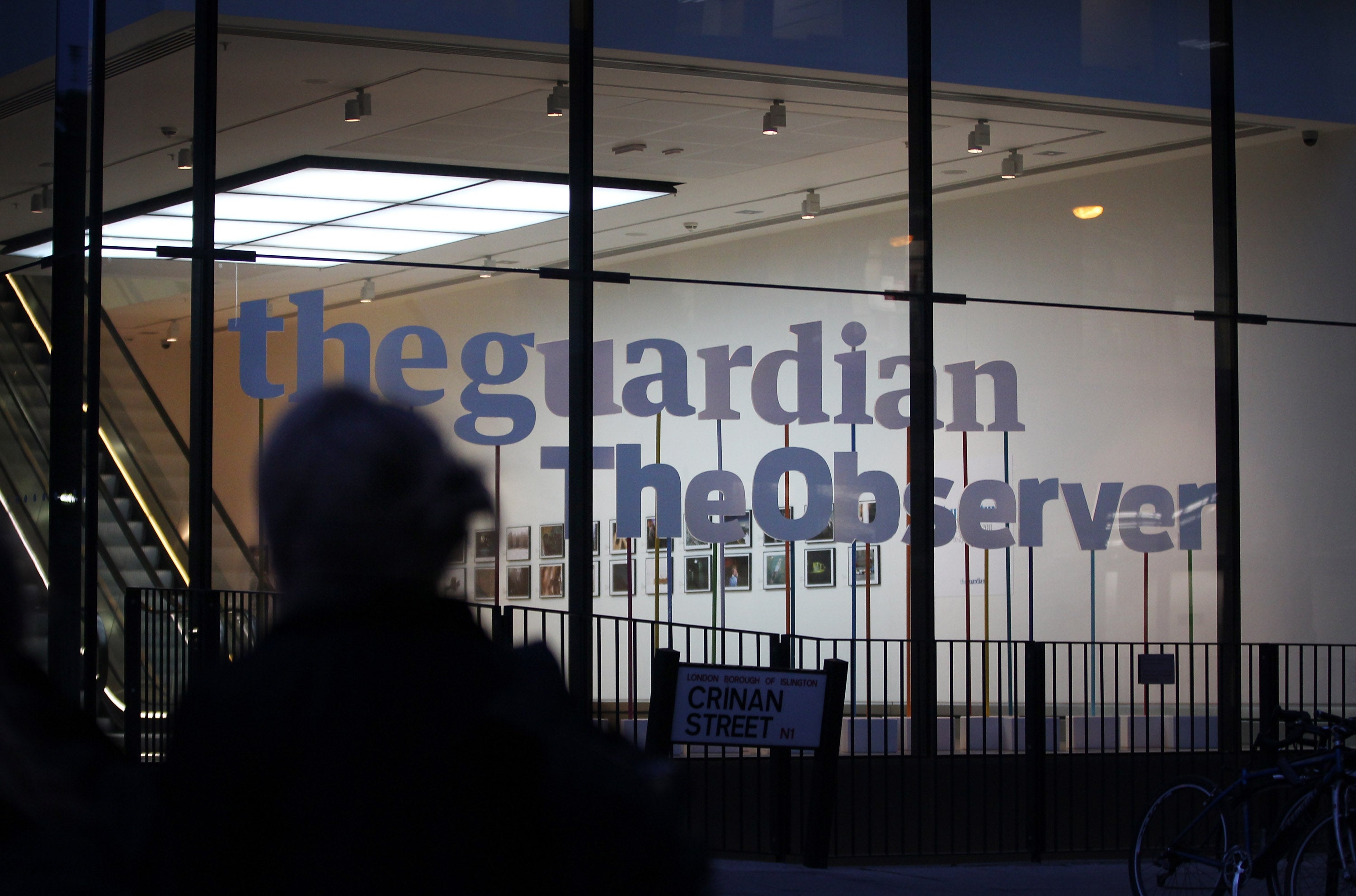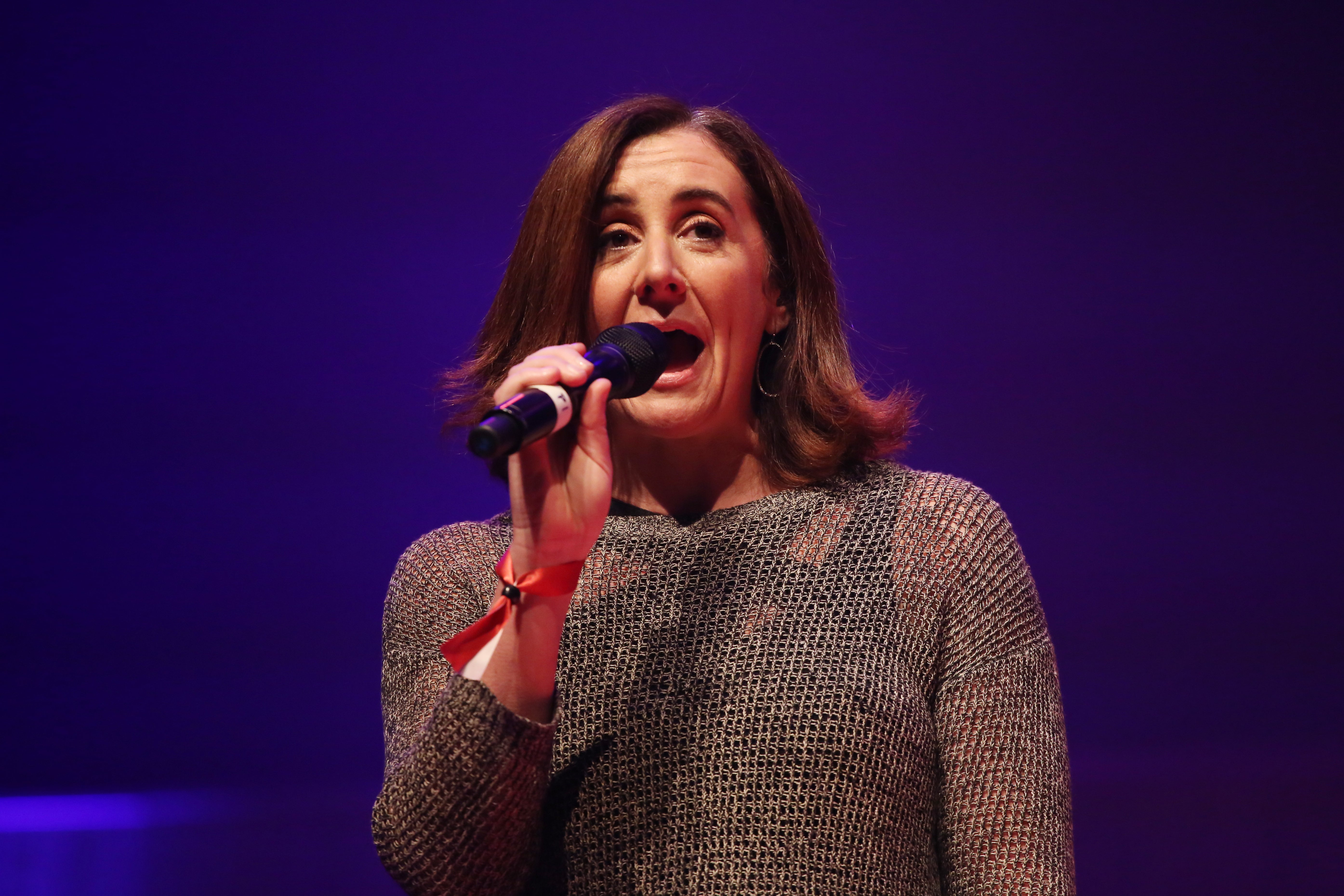The Independent's journalism is supported by our readers. When you purchase through links on our site, we may earn commission.
Guardian accused of covering-up sexual harassment by star columnist
Lucy Siegle tells Andy Gregory that her experience with Guardian News and Media has ‘really shaken me to the foundations’

After more than two decades at The Observer, prize-winning journalist and author Nick Cohen resigned in November last year with a fond farewell. Editor Paul Webster publicly hailed him a “brilliant columnist” while the publisher, Guardian News and Media, thanked him for his “long service and contribution”.
But revelations this week have led to disturbing questions for GNM – and its approach to dealing with Mr Cohen after multiple claims emerged of sexual misconduct towards female colleagues.
Allegations first began to surface in October 2021, at which point freelance journalist and BBC One Show presenter Lucy Siegle accused him on Twitter of having groped her in the office 20 years prior, when she had been a newly-recruited admin assistant at the paper.
The following July, Ms Siegle was one of two then unnamed women whose claims were made public by barrister Jolyon Maugham, sparking a “pause” in Mr Cohen’s column as GNM opened an internal probe into the allegations, which Mr Cohen was reported at the time to say were “vile and untrue”.
This week an investigation by the New York Times brought to light claims by seven women in total – four of whom remain anonymous – of groping or unwanted sexual advances over a period spanning nearly two decades.
Five of the women told the paper of encounters similar to Ms Siegle’s in pubs between 2008 and 2015, including one incident in which he allegedly pressed his erection against a woman’s thigh and kissed her uninvited when meeting to discuss her career. The other woman said he repeatedly offered to send her explicit photographs in 2018 while she worked for him as an unpaid copy editor.
Furthermore, GNM is alleged to have paid Mr Cohen a financial settlement for quitting and agreed to confidentiality, multiple sources told the paper, including Private Eye editor Ian Hislop, who claimed he had discussed the terms of the “secret agreement” and “big cash payment” with Mr Cohen.
While raising fresh questions for The Guardian, the fallout has also hit the Financial Times, with claims that editor Roula Khalaf decided not to publish an investigation earlier this year into the allegations against Mr Cohen.

Ms Khalaf is claimed by colleagues to have said Mr Cohen lacked the necessary business profile to make it an “FT story”.
An FT spokesperson described any suggestion that they had supressed the story as “deeply unfair”.
“The FT has a strong reputation for exposing abuse of power and harassment” the spokesperson said. “Not all filed pieces meet the rigorous standards of the FT and/or move a story along significantly. These judgments are made daily by the editor and her team and never lightly.”
Speaking to The Independent, Ms Siegle said there had been a wider reluctance by the media to expose wrongdoing in its own ranks. “I just think that there hasn’t been a #MediaToo story or any self-examination by the industry,” she said. “I hear on a daily basis from people who have been supressed or too frightened to speak out.
“I don’t personally think there’s a duty on women in particular to speak up,” she added. “But a lot of people need to and want to, and there has not been any place to tell these stories in the media industry.”
While Mr Cohen is reported to have initially blamed the first two allegations against him on a campaign by his critics, including advocates for Russia and for transgender rights, upon being informed of the seven accusers in total, he reportedly responded to the New York Times by saying: “Oh, god.”
“I assume it’s stuff I was doing when I was drunk,” Mr Cohen, who is a recovering alcoholic, told the paper. He said in a later email: “I have written at length about my alcoholism. I went clean seven years ago in 2016. I look back on my addicted life with deep shame.”
Ms Siegle told The Independent that, in some ways, GNM’s handling of her complaint – which she first raised with a senior colleague in February 2018 – had been more injurious to her than her alleged encounter with Mr Cohen.
“[I’ve] been treated really horribly by [GNM] … it’s really shaken me to the foundations,” Ms Siegle said, alleging that her experience “will have had a chilling effect” on others deciding whether or not to come forward with similar stories.
Ms Siegle said the “power differential” between herself and Mr Cohen had been significant and “really underplayed” in how the incident was handled.
In contemporaneous notes, Ms Siegle described an initial meeting as “a chaotic mess of defensiveness and attack” and likened it to “having a door shut in my face”.

Ms Siegle first went public with her accusation on Twitter in October 2021, after reading a tweet by barrister Jolyon Maugham questioning whether Mr Cohen “is the champion they would choose for women’s rights in the workplace”, in response to a column of his about women being made to fear speaking on trans issues.
“I was so crazy mad that this guy was positioning himself as a defender of women knowing what I knew about him,” Ms Siegle said. “The fact that Jolyon had written that, and he’s not even in the industry, made me know that [Mr Cohen] had ... done it again.”
Subject access requests, seen by The Independent, show GNM discussed the need to launch an investigation in response to Ms Siegle’s tweets. Other messages between staff members not understood to be in management roles described Ms Siegle as appearing “vindictive and not in control” in her social media posts, which one individual claimed “totally undermines her allegations”.
Yet Mr Cohen did not take a pause from his column until last July, when complaints by Ms Siegle and a second anonymous accuser were made public by Mr Maugham. GNM said the complaints in 2021 and 2022 prompted “our own HR investigations”, which had not concluded prior to his departure in November.
Ms Siegle said she had always felt the investigation by GNM to be “quite nebulous”, adding: “I’ve never been clear on the dates.” GNM did not disclose what the results of the investigation had been, when asked by The Independent.
While Ms Siegle said the publisher offered them the chance to take part in an inquiry, she said they ultimately refused after disagreement over its scope and a breakdown of trust during legal correspondence.
“We were not prepared to co-operate because they really made it very clear that they were going to bounce us into a process that we’d been studiously trying to avoid because we knew it would be traumatising, weird and based on what [Mr Cohen] wanted,” Ms Siegle claimed.
In a statement, a GNM spokesperson said: “We take all allegations of workplace harassment extremely seriously and aim to support victims in all circumstances. We have processes which anyone can use to raise complaints so that they can be fully investigated.
“None of the incidents the NY Times reports were raised with GNM senior management until one serious allegation was raised confidentially with a member of GNM senior management in 2018. However, the victim asked to remain anonymous and did not wish to pursue the complaint.
“When further details of this and another complaint were later made public on social media in 2021 and 2022, we instigated our own HR investigations, although neither complainant wished to take part. Prior to the conclusion of the HR process, Nick Cohen left the Observer in November 2022 on grounds of ill-health.”
But Ms Siegle, who formerly wrote a long-running Observer column on ethical living, accused the publisher of “distorting a few emails that they got from me” and insisted that an investigation was not offered to her in 2018, saying: “I in no way thought that I was turning down a process.”
Ms Siegle said she believed claims of a financial settlement with Mr Cohen will cause fellow accusers to “feel mighty p***ed off”, and questioned what the reaction would be among Guardian staff and contributors.
Mr Cohen told the New York Times that he had accepted a deal after considering the financial implications for his family, adding: “I’m the only person whose life is turned over because of this.”
But Ms Siegle told The Independent: “That’s just not true. My life’s been turned upside down by this”.
The Independent has approached Mr Cohen for comment.
Rape Crisis offers support for those affected by rape and sexual abuse. You can call them on 0808 802 9999 in England and Wales, 0808 801 0302 in Scotland, and 0800 0246 991 in Northern Ireland, or visit their website at www.rapecrisis.org.uk. If you are in the US, you can call Rainn on 800-656-HOPE (4673)




Join our commenting forum
Join thought-provoking conversations, follow other Independent readers and see their replies
Comments